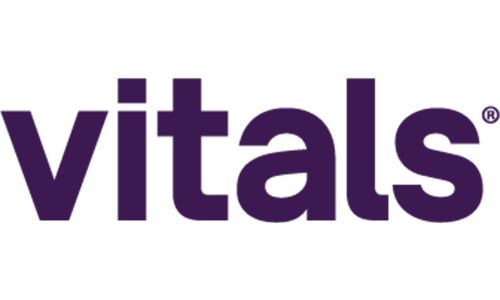How to Write Blogs that Resonate with Patients
Keep your patients wanting more of your content with these simple tips.
Do you want to help your patients stay informed about their health? Are you looking for a way to communicate with them that is both engaging and informative? If so, then blogging may be the perfect solution. In this blog post, we'll discuss how to write effective blogs for patients that can help keep them engaged and informed.
1. Understand Your Audience
It is important to understand who your audience is when creating medical and dental blogs. This will help you determine what topics and content will be of interest to them. To get a better understanding of your audience, take a look at the comments they leave on your blog posts. This will give you an insight into what problems they are facing, as well as their preferences. Additionally, use tools such as surveys to get feedback from patients and providers on what topics they would like to see discussed in your blog posts. Knowing your audiences needs and wants will help you create engaging and helpful content that they will enjoy reading.
2. Hook Your Readers
Starting your post off with an engaging hook is a must if you want to draw readers in. Whether its a compelling story, an interesting fact, or a thought-provoking question, your readers should be hooked from the get-go. To ensure you keep your readers engaged, its important to understand who your audience is and what type of content they will respond to. Once you know who you're targeting, you can find the best way to hook them. This could be through the use of relevant data to make a point, a personal anecdote that resonates with them, or an attempt at humor that makes them chuckle. Additionally, by optimizing for SEO, you can ensure that the right people are finding your content. Once the right people are finding your content, an effective hook will have them sticking around for more!
3. Understand Your Topic
Once you have chosen a topic and begun to plan your blog post, it is important to understand your topic. Doing research on the topic is key in ensuring accuracy and thoroughness. You can start by researching keywords related to the topic, as this will help you determine what other topics will be related to your blog post. It is also important to conduct research in order to check facts and make sure that your content is up-to-date and accurate. This will help you gain the trust of readers, which is essential for a successful medical blog post. Additionally, understanding the source of information for your post will help you create an authoritative blog post that readers can rely on.
4. Research Keywords
Once you have a good understanding of the topic and your audience, it's time to start researching keywords. Keyword research is an essential part of creating an effective SEO strategy. By selecting the right keywords, you can ensure that your content is seen by the right people. To do this, you should aim to identify keywords with high search volumes and low keyword difficulty (KD). This will help you create content that is both relevant and optimized for search engines. Additionally, it's important to consider long-tail keywords when doing keyword research. These are more specific and generally have lower competition and higher relevance to your topic. By researching the right keywords, you can ensure that your content is optimized for SEO and reaches the right audience.
5. Outline Your Post
Outlining your post is the key to creating a coherent, well-structured blog post. Start by writing down all of the points you want to discuss in your post. Then, decide how you want to link them together to create a logical flow. This can help you determine which points belong in each section and create a roadmap for writing your blog post. Outlining your post also helps you identify any gaps in your research and make sure that all of the facts and data support your argument. Once you have an outline, its time to start drafting your content.
6. Find the Right Authors
Once you understand your audience and topic, its time to find the right authors to write your healthcare blogs. Its important to find writers who are knowledgeable and experienced in the healthcare industry, and can provide an informed perspective on the topics you're covering. Consider reaching out to professional healthcare bloggers, or use a company like Clinician Box that specializes in healthcare copywriting. When looking for authors, read their sample work to ensure they have the right writing style and tone for your blog. Additionally, you should always make sure that the authors you choose are familiar with SEO best practices for content writing. With this knowledge, you can be sure that your blog will be optimized for search engines and get maximum exposure.
7. Draft Your Content
Once you have a good understanding of your topic, research keywords, and outline, its time to start writing. Writing your post should be the most enjoyable part. But its important to remember the audience you are writing for. As such, ensure that your content is well-structured, easy to read and engaging. Use simple language and avoid jargon or overly complicated terms. A great way to write content is by starting with a story that directly relates to the topic you are discussing. This will help draw in readers and keep them engaged. Additionally, it's important to make sure that you include relevant facts and data as this will make your post more trustworthy and credible. Once you have written your content, its time to review and edit it before publishing it online.
8. Optimize for SEO
Once you have written your blog post, it is important to optimize for SEO. This involves using keywords that are related to your topic and which users may use when searching for information. Additionally, you can use internal links to other content on your website, as well as external links to other websites with relevant information. Finally, check the readability of your blog post; make sure that it is easy to read and understand. Utilizing these techniques will help your blog post rank higher in search engine results and attract more readers.
9. Post Regularly
Posting regularly is essential for writing successful blogs for patients. It gives readers something to look forward to and signals that you are dedicated to providing quality content. When it comes to frequency, there is no one-size-fits-all formula. However, some research suggests that once a week is a good starting point. This allows you to provide fresh, relevant content on a consistent basis while still allowing enough time to craft well-researched and thoughtfully written posts. Additionally, make sure your posts cover topics related to your audience's interests and needs. Through keyword research and data analysis, you can ensure that your content is tailored to the right target audience while also optimizing it for search engine crawlers. With the right tools and techniques, you can create a blog that will be read and appreciated by your readers.
10. Reflect and Analyze
After you have posted your blog and published it, it is important to reflect and analyze the content. Looking back at the previous steps, you can assess the effectiveness of your post. Reflection helps you to understand what worked and what didn't work. Analyzing the post will allow you to see which keywords were successful in driving traffic to your post, as well as what other topics or ideas resonate with your readers. Reflecting and analyzing your blog posts will help you become a better writer and create more engaging content that resonates with your readers.
Conclusion
The conclusion of a blog post is your opportunity to encourage readers to take action. Remind them of the points you made in your blog post, and explain how taking the recommended steps will benefit them. For example, if you wrote a blog about how to write blogs for patients, you could offer tips on optimizing for SEO and posting regularly to help your blog reach more potential readers. You can also use this space to thank readers for taking the time to read your blog and encourage them to share it with their friends if they found it valuable. With a strong conclusion, your readers will come away from your post feeling inspired and energized.
If you are looking for healthcare copywriters, reach out to the team at Clinician Box. We make it easy, affordable, and effective to marketing your medical practice.















